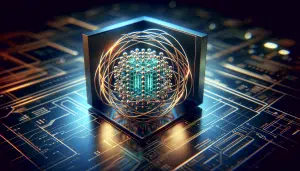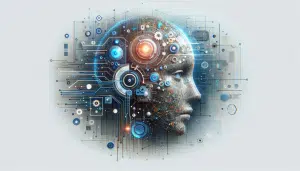The Benefits of Digital Detox for Mental Health
Ethan Harris August 6, 2025
In our increasingly digital world, the constant barrage of notifications, emails, and social media updates can take a significant toll on our mental health. While technology brings numerous benefits, excessive use of digital devices can lead to stress, anxiety, and diminished mental clarity. This is where a digital detox comes in. A digital detox involves taking a break from digital devices such as smartphones, computers, and social media platforms for a set period. In this article, we explore the mental health benefits of a digital detox and how taking regular breaks from screens can improve your well-being.

What is a Digital Detox?
A digital detox is a period of time when you refrain from using digital devices, particularly those that can be overwhelming or addictive, such as smartphones, social media, and computers. It’s about disconnecting from the constant flow of information and reconnecting with the present moment. A digital detox can last for a few hours, a day, or even longer, depending on your needs and preferences.
- Purposeful Disconnection: The goal is to reduce screen time and engage in activities that promote relaxation, creativity, and mindfulness, such as reading, exercising, or spending time outdoors.
- Temporary Break: Unlike abandoning technology completely, a digital detox involves taking periodic breaks to restore balance in your life and reduce mental fatigue caused by overuse of digital devices.
For more on the concept of digital detox, check out Psychology Today’s article on Disconnecting for Mental Health.
How a Digital Detox Benefits Mental Health
A digital detox offers a wide range of mental health benefits. Here’s how stepping away from screens and devices can improve your overall well-being:
1. Reduces Stress and Anxiety
First, constant digital stimulation—especially from social media, news, and email—can increase stress levels and lead to feelings of anxiety. The pressure to stay constantly connected, respond quickly to messages, and keep up with the latest updates can be overwhelming. Thus, a digital detox allows you to step away from these stressors and take a mental break.
- Lower Cortisol Levels: Constant digital engagement can trigger the release of cortisol, the stress hormone. Disconnecting from screens helps reduce cortisol levels, promoting a calmer and more relaxed state.
- Breaking the Cycle of Information Overload: The constant flow of information from digital devices can lead to information overload, which can increase anxiety and make it harder to focus. Therefore, a digital detox gives your brain a much-needed break from this continuous stream.
For more on how digital detox helps reduce stress, see Harvard Health’s article on the Effects of Technology on Stress.
2. Improves Sleep Quality
The blue light emitted by screens can interfere with your natural sleep cycle, making it harder to fall asleep and stay asleep. Moreover, exposure to screens before bedtime disrupts the production of melatonin, a hormone that regulates sleep. As a result, a digital detox, especially in the evening, can improve sleep quality and help you establish a healthier sleep routine.
- Better Sleep Hygiene: A digital detox, particularly in the hour leading up to bedtime, helps create a more relaxing environment, making it easier to wind down and fall asleep.
- Increased Restorative Sleep: By eliminating screen time before bed, you allow your brain to rest and recharge more effectively, leading to better sleep quality and improved mental health the following day.
For more on how screen time affects sleep, read Psychology Today’s article on Technology and Sleep.
3. Enhances Focus and Productivity
Excessive screen time can reduce your ability to focus on important tasks. This is because the constant switching between apps, emails, and social media can create mental fragmentation and make it difficult to stay focused on one task at a time. By taking a break from technology, you regain clarity and the ability to concentrate.
- Increased Attention Span: Disconnecting from digital distractions allows you to regain your attention span, helping you stay focused for longer periods and complete tasks more efficiently.
- Deeper Work: A digital detox promotes the ability to engage in “deep work,” where you can focus without interruptions, leading to higher quality results and more meaningful accomplishments.
For more on how digital detox improves focus, check out Forbes’ article on Digital Detox for Better Focus.
4. Boosts Mental Clarity and Creativity
Overuse of digital devices can lead to mental fatigue, making it difficult to think clearly or be creative. However, taking time away from screens allows your mind to rest, refocus, and stimulate creativity. With fewer distractions, you’ll find that your ability to generate new ideas and solutions improves.
- Creative Recharging: A break from the constant flow of information and digital noise encourages creative thinking and allows for new ideas to emerge.
- Improved Cognitive Function: Research has shown that disconnecting from digital devices for a period of time can improve cognitive function, leading to sharper thinking and better decision-making.
For more on how digital detox boosts creativity, see Psychology Today’s article on Digital Detox and Creativity.
5. Promotes Mindfulness and Presence
Technology often keeps us distracted and disconnected from the present moment. On the other hand, a digital detox encourages mindfulness by helping you reconnect with your surroundings and be present in your daily experiences. Whether you’re spending time with loved ones, engaging in a hobby, or simply relaxing, a digital detox allows you to fully engage with the world around you.
- Increased Mindfulness: Without the constant distractions of technology, you can practice mindfulness and develop a greater sense of awareness and presence in your life.
- Strengthened Relationships: A digital detox allows you to engage more meaningfully with others. Whether it’s a conversation with a partner, a family member, or a friend, being fully present helps deepen connections.
For more on the role of mindfulness in digital detox, check out Mindful.org’s article on Digital Detox for Mindfulness.
How to Implement a Digital Detox
If you’re ready to experience the mental health benefits of a digital detox, here are some practical tips to get started:
- Set Time Limits
Start by setting time limits for your daily screen time. Use apps or built-in device settings to track and limit screen usage. Gradually reduce your screen time until you can comfortably take longer breaks from technology. - Create Technology-Free Zones
Designate specific areas of your home or day where digital devices are not allowed, such as during meals, in the bedroom, or during family time. In doing so, this encourages presence and helps reduce the temptation to check devices. - Schedule Regular Breaks
Dedicate certain hours or days for a digital detox. This can be as simple as turning off devices for an hour each day or taking a whole weekend off from social media. By planning regular detox days, you maintain balance. - Engage in Offline Activities
Replace screen time with offline activities that promote relaxation and mental clarity, such as reading, exercising, meditating, or spending time outdoors. These activities help you recharge and improve your mental health. - Practice Mindfulness
Incorporate mindfulness techniques like deep breathing, meditation, or journaling during your digital detox. This helps you reconnect with your thoughts and feelings without the interference of digital devices.
For more tips on implementing a digital detox, see MindTools’ guide on Reducing Digital Distractions.
Conclusion: The Mental Health Benefits of a Digital Detox
A digital detox offers significant mental health benefits, including stress reduction, improved sleep, enhanced focus, and increased creativity. By disconnecting from the constant stream of information and technology, you give your mind the space it needs to recharge, focus, and engage with the present moment. Incorporating regular digital detoxes into your routine can lead to improved mental well-being, better decision-making, and a healthier relationship with technology.
Take the first step today by setting aside time for a digital detox and discover the profound benefits it can have on your mental health.detox and discover the profound benefits it can have on your mental health.
References:
- Psychology Today. (2021). The Importance of a Digital Detox. Retrieved from https://www.psychologytoday.com/us/articles/2021/08/the-importance-of-a-digital-detox
- Harvard Health. (2020). How Technology Affects Stress. Retrieved from https://www.health.harvard.edu/staying-healthy/why-technology-may-be-increasing-stress
- Psychology Today. (2021). How Digital Detox Can Revitalize Creativity. Retrieved from https://www.psychologytoday.com/us/articles/2021/04/how-digital-detox-can-revitalize-creativity
- Mindful.org. (2021). Digital Detox for a More Balanced Life. Retrieved from https://www.mindful.org/digital-detox-for-a-more-balanced-life/







